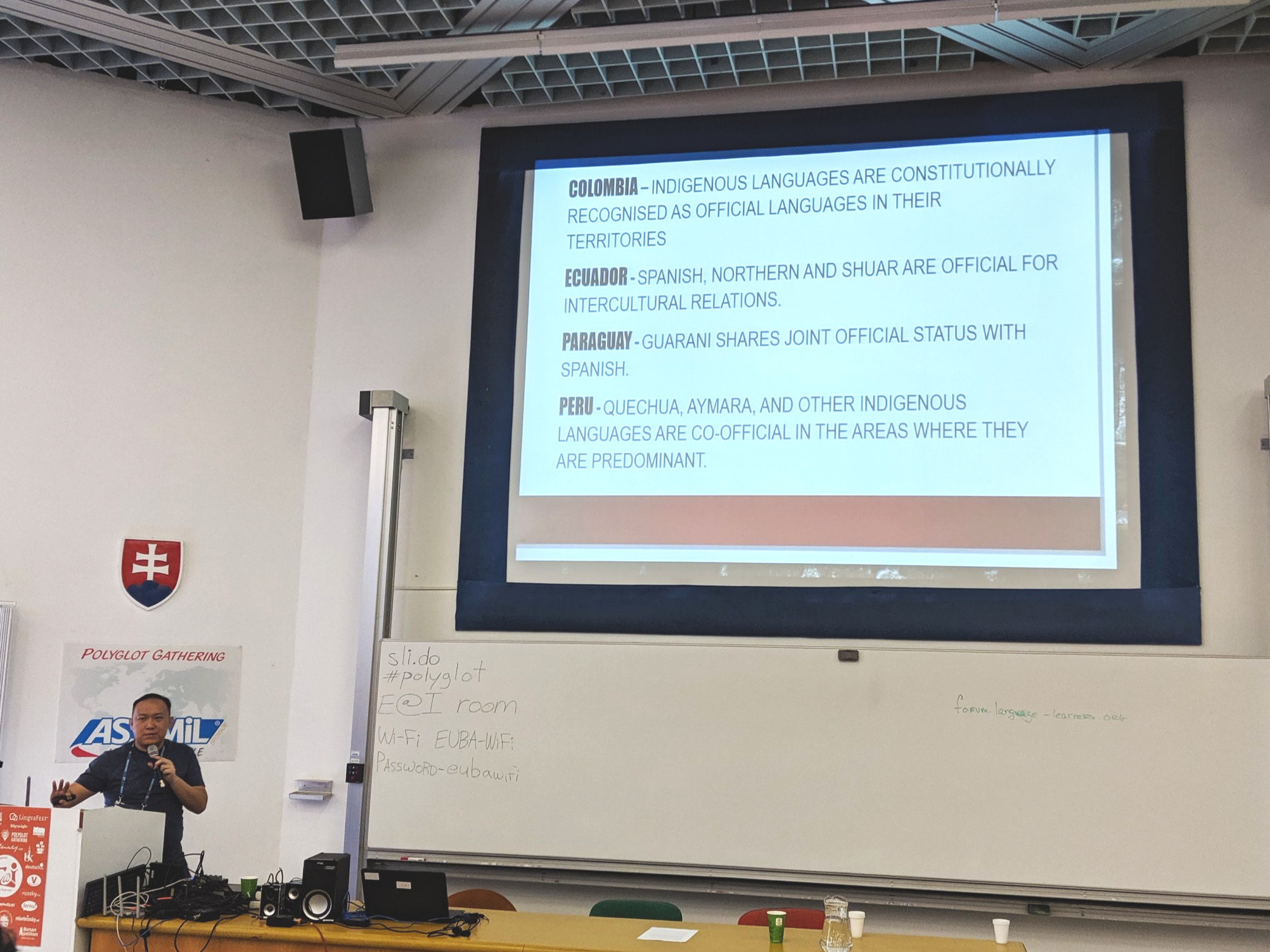The surprising world of polyglots
St Michael’s Tower in the Old Town of Bratislava, Slovakia.
Having just returned from my first Polyglot Gathering in Bratislava, my mind is buzzing with newfound inspiration. Over 600 attendees were packed into the University of Economics over the “5-day weekend”, with hundreds of talks and workshops ranging from how to teach languages with board games, to a panel discussion around language hegemony, to an introduction to Neurolinguistic Programminc (NLP) as a way to take control of your life. Most importantly, though, it was a chance to meet hundreds of others who share my love and ambition for learning about languages and cultures.
The conference was also a great excuse to launch my blog, and I’d like to start by sharing my top takeaways from the event.
1. Language privilege is real
Language privilege, loosely the same as language hegemony, is the power that speakers of one language (especially native speakers) have over those who don't speak that language, or don't speak it well. Throughout history, this power has been used to subvert the rights of some groups in favour of a dominating group. In a panel discussion on language hegemony, Dr Seán Ó Riain shared a story of the Irish language, which under 19th Century British rule was not a legally recognised language in Ireland. An Irishman named Maolra Seoighe was tried for a crime that he didn't commit. In court, Maolra could not understand the English proceedings, and his solicitor could not understand Irish. He was found guilty of murder, though he never knew it himself, and hanged none the wiser, expressing confusion about why this was happening moments before his death. This is an extreme case of language hegemony, where speakers of English had clear advantage over Irish speakers.
Of course, we’ve come a long way since the 19th Century, and in fact, Maolra Seoighe was (136 years posthumously) pardoned in 2018. Language policy and revival efforts around the world help to give minority languages and heritage a status similar to dominant ones. Revival initiatives for Irish, Welsh, and other minority languages in the UK and all over the world have had mixed success, but many governments agree that embracing one’s linguistic and cultural heritage is critical to healthy and productive communities. (Brian Loo Soon Hua, Dave Prine and André Müller gave insight into indigenous, endangered, and minority languages).
Brian Loo Soon Hua on preserving indigenous languages.
Language privilege can be taken back in other, smaller ways, too. Beth Desmond in her presentation on Polari, and Nathalie Blom in her talk on inclusive language, showed that language can empower not just ethnic minorities but also other marginalised groups. Polari, now mostly diffused into British slang, was an English cryptolect used by communities in the performing arts in the UK from Shakespearean times up until the first half of the 20th Century. Before homosexuality was legalised in 1967, Polari was a way for the LGBTQ community (particularly gay men and trans women) to safely express themselves while avoiding persecution.
Many of the presenters touched on the importance of diversity: The diversity of languages, of perspectives, and the inclusion of marginalised groups. In the panel discussion on language hegemony, multilingualism was seen as an antidote to linguistic prejudice. Nathalie Blom talked about the importance of inclusive language for marginalised parts of society. Embracing diversity is not just about creating a fairer, more equal society, but in fact about creating more innovative and prosperous economies. I've written before about the importance of diversity in the workplace, and how diverse teams tend to create better products and services.
2. A little effort = big rewards
A small notebook, hand gestures, and Google Translate on hand goes a long way.
A couple of months before attending the PG19, I decided to try to pick up some Italian. After all, I was going to visit Bologna the weekend before the gathering, and I had always wanted to learn a bit of this beautiful language. I had a clear goal of being able to speak some specific useful phrases and to understand simple directions from Italian speakers. With a combination of Italian podcasts, music, films, language apps and Google Translate, I put in a semi-regular daily practice of 10-30 minutes during the weeks leading up to the trip. Unfortunately, once I got to Bologna, I actually ended up being lazy and letting my native Italian travel companion do most of the talking. Though I got some passive practice at comprehension, I was barely able to test out my own speaking skills until I arrived in Bratislava. But once I got there, I could finally dive in. Though my sentences were "Spaliano" at best* (the word used for the gibberish spoken by those who have learnt a little bit of Spanish and a little bit of Italian), and I hadn't figured out the past tenses yet, there’s nothing like the feeling when you’re able to have your first few conversations in a new language. Being able to say "Il mio padrino è mezzo italiano e mezzo norvegese" (My godfather is half Italian and half Norwegian) led to some interesting conversations about family and "chosen family" with Italian speakers.
3. Language learning is personal
How angry are you from “sauer” to “wutentbrannt”? Lina Vasquez showed how the words you use can change how you feel.
Though practical reasons for learning a language, like work or travel, may be common, the Polyglot Gathering and others like it wouldn't exist if the benefits of language learning were merely practical. Why and how you learn a new language is individual only to you. The “why” could be anything from falling in love with Japanese manga and anime and wanting to understand it on a deeper level, to wanting to add proficiency in French to your CV, to loving the sing-song intonation of the Norwegian language. The "how" could be taking formal lessons, getting hooked on your new favourite TV thriller (e.g. the binge-worthy "Wanted" in German), unwinding with catchy salsa tunes in Spanish, testing your cooking skills with French recipes for coq au vin, or diving in the deep end by attending a conversational Italian meetup in your city.
Every person’s language learning journey is a different story, and everyone has different methods that work for them. What they all seem to have in common is being open to unconventional approaches and experimentation.
This community of incredibly kind, ambitious, open-minded people have touched my heart and inspired my mind, and I’m looking forward to working more closely with some of you soon!
The PG2019 was held for the third and final time in Bratislava, and next year it will move on to Teresin, Poland.



